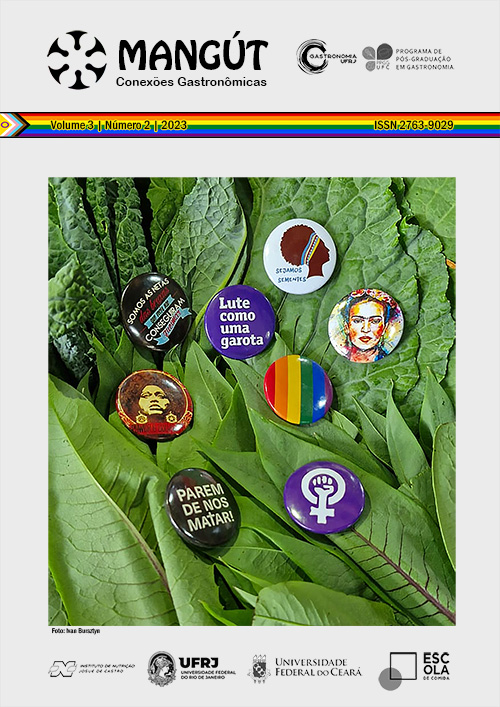Culinary learning in childhood and its perceptions by Gastronomy students and professionals
DOI:
https://doi.org/10.70051/mangt.v3i2.61251Keywords:
Gastronomy, Culinary, Education, Informal Education, Gender StudiesAbstract
When establishing relationships between commensality, affective food and domestic cuisine, Gastronomy uses important concepts from Social Sciences, such as gender and childhood, to point out food, eating and cooking as a cultural and identity factor. The objective of this research was to analyze the influences of gender relations and the sexual division of domestic work on the learning of cooking in childhood of a group of 53 undergraduates and graduates of the Bachelor's Degree in Gastronomy at the Federal University of Rio de Janeiro. From the multimethod perspective, it is characterized as exploratory and descriptive, with triangulation of methodological procedures of bibliographic research, survey and Content Analysis. Among the main results, it is noteworthy that female respondents have been closer to home cooking since childhood, while most male respondents indicated the influence of the media in their development due to their culinary interest.
Downloads
Published
Issue
Section
License
Copyright (c) 2024 Beatriz Carvalho Tavares, Annah Bárbara Pinheiro dos Santos, Daniela Alves Minuzzo

This work is licensed under a Creative Commons Attribution 4.0 International License.
Autores que publicam nesta revista concordam com os seguintes termos:
- Autores mantém os direitos autorais e concedem à revista o direito de primeira publicação, com o trabalho simultaneamente licenciado sob a Licença Creative Commons Attribution que permite o compartilhamento do trabalho com reconhecimento da autoria e publicação inicial nesta revista.
- Autores têm autorização para assumir contratos adicionais separadamente, para distribuição não-exclusiva da versão do trabalho publicada nesta revista (ex.: publicar em repositório institucional ou como capítulo de livro), com reconhecimento de autoria e publicação inicial nesta revista.
- Autores têm permissão e são estimulados a publicar e distribuir seu trabalho online (ex.: em repositórios institucionais ou na sua página pessoal) a qualquer ponto antes ou durante o processo editorial, já que isso pode gerar alterações produtivas, bem como aumentar o impacto e a citação do trabalho publicado (Veja O Efeito do Acesso Livre).



